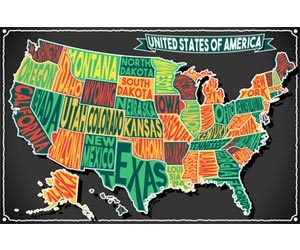National Geospatial-Intelligence Agency Jobs
The National Geospatial-Intelligence Agency (NGA) provides timely, relevant and accurate geospatial intelligence in support of national security objectives. That’s their official mission statement, but what do they actually do, and what is geospatial intelligence, anyway? NGA has an interesting function within the national security community.

The agency creates and analyzes maps, charts, and all kinds of imagery to help provide important information to a variety of customers. NGA’s customers include civilian and military leaders, and their products help high-level government officials make critical decisions and react quickly to potential threats to national security. NGA also helps with humanitarian causes-for example, they have the tools to track floods and to help with disaster recovery and peacekeeping operations. The agency also provides the “Notice to Mariners,” a service that gives those at sea the most accurate nautical charts available to date.
According to A History of NGA the organization’s roots date back to 1803 and the Lewis and Clark expedition to map the territory of the Louisiana Purchase. In later years, as U.S. shipping began to expand, Americans wanted to become less dependent on British nautical charts and start making their own. After another hundred years, the growth of aviation led to the use of airplanes for reconnaissance in World War I. Pictures could now be taken from aircraft, giving military commanders a better idea of what their enemies were planning. Pictures taken from space became more critical to national security during the Cold War, when satellites were able to take extremely detailed images of the earth from space.
Though the organizations, products, and technology have changed dramatically over the past 200 years, NGA (formerly NIMA and DMA) has continued to play a critical role in world history.
To learn more about this organization or check for current job openings, check out their website.
NGA Job Information
Brandi Lowe, Director of Recruitment, noted that all job postings on the NGA website list the mandatory requirements and desirable qualifications for each position. Lowe said that applicants interested in applying for these federal government jobs should consult the job posting and make sure their background matches the requirements.
These job postings would be a great research tool for long-term career planning. For example, if you know you want to work at NGA as an HR professional, take the time to look at the requirements for the current openings and use them to help tailor your coursework and extra-curricular activities so that you are appropriately prepared.

